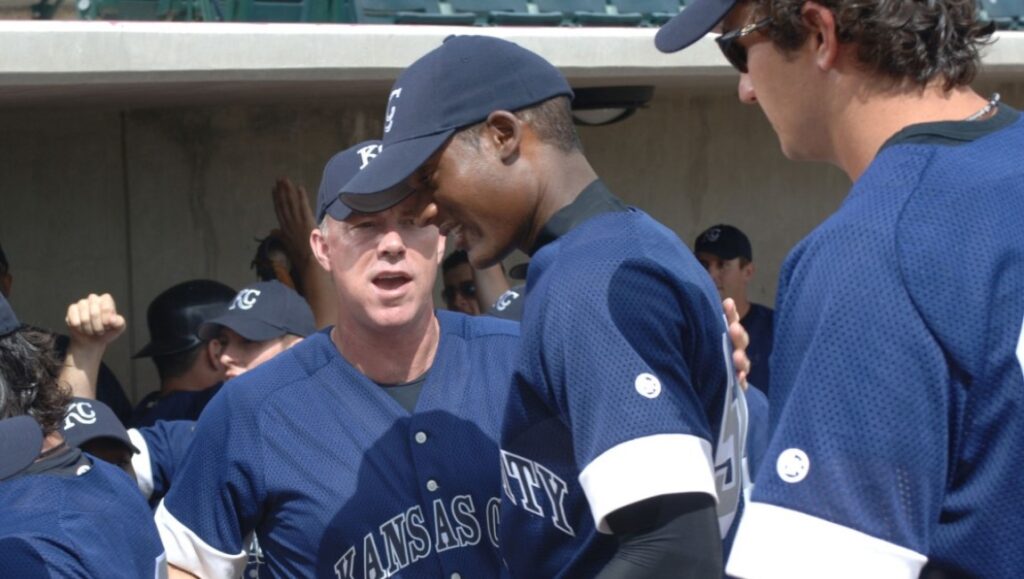Following 2006’s Half Nelson, a convincing depiction of friendship between a 13-year-old and her crack-addict teacher (a role which Ryan Gosling won an Academy Award nomination for), filmmakers Anna Boden and Ryan Fleck choose to chart the experience of an isolated and often lonely individual. Sugar, a baseball rise-and-fall story that also serves as a character study, centers on Miguel “Sugar” Santos (Algenis Perez Soto), a Dominican-born rookie who earns passage to the U.S. minor leagues on the strength of his golden pitching arm. Far more interesting than the tired baseball angle that propels the film’s narrative are the layers of sociopolitical examination inherent in this immigration story. The two elements complement each other, as Sugar’s baseball career is often likened to that of a racehorse, with the constant threat of being replaced if the quality of his performance decreases. Relocating Sugar to a farm in rural Iowa and, to a lesser extent, the way in which Sugar and his teammates are branded with jersey numbers and team names, furthers this analogy. The pressures that bear down on Sugar are both competitive and cultural, the latter being a language barrier which serves to accelerate the introverted 20-year-old’s loss of identity — in one instance, Sugar is interviewed by an American journo, and his eloquent response in Spanish is poorly translated, a scene which is both comic and poignant in its observation that Sugar is little more than a commodity to his fans.
Just as Half Nelson was mired by some rocky plot points, Sugar’s narrative feels bound to the predictable arc of the sports pic, only occasionally breaking free from genre formulas in unexpected ways. The filmmaking keeps things interesting, as this duo continues to make resonant aesthetic choices that strengthen our relationship with their protagonist and his environment. Some are recycled from Half Nelson (abundant depth-of-focus imagery perhaps a bit too easily illustrates Sugar’s isolation from the people and places around him), but there are other cinematic devices that weren’t present in their first film. A few well-timed zooms subtly evoke the overwhelming pressures weighing on Sugar each time he takes the mound, while one extended, over-the-shoulder tracking shot through a crowded arcade room recalls the Dardenne brothers’ brand of filmmaking. Unlike a similar device in Darren Aronofsky’s The Wrestler last year, the shot serves a very specific purpose in Sugar, putting us in the character’s position of disorientation, just as the soft focus signifies Sugar’s hazy perspective on his surroundings. Furthering our investment in Sugar is Soto’s soulful and earthy performance, which, like the whole of this film, feels unforced, if anything too subdued. The two sequences in which Soto is asked to emote with intensity (one out of rage, the other sadness) are both shot with the actor’s back to the camera, a smart directorial decision that places emphasis on the material rather than the performer, which, from a non-actor like Soto, could have easily seemed either histrionic or unconvincing. Soto’s performance is even more impressive considering the athletic requirements.
In an interview with Slant Magazine, Boden explained that “[Soto] became an all-star pitcher before we started shooting,” due to his “work ethic” and training with the pitching coach for the Astros. When the filmmakers found Soto, he was an in-fielder, and never pitched before, so in a sense the actor’s hard work to get the role mirrors the character’s own struggle, and being a Dominican ballplayer himself, the material is certainly relatable. If Boden and Fleck still seem a bit more attached to narrative formula than they claim they are, at least the subjects they choose to film (particularly Soto and the young star of Half Nelson, Shareeka Epps) are consistently compelling and real. In the last act of Sugar, the filmmakers exhibit a willingness to avoid an atypical crowd-pleasing conclusion (a temptation Danny Boyle succumbed to big time for his own slum-to-stardom fable, the Oscar-winning Slumdog Millionaire), opting instead for ambiguity, which is all too rare in American independent cinema.


Comments are closed.